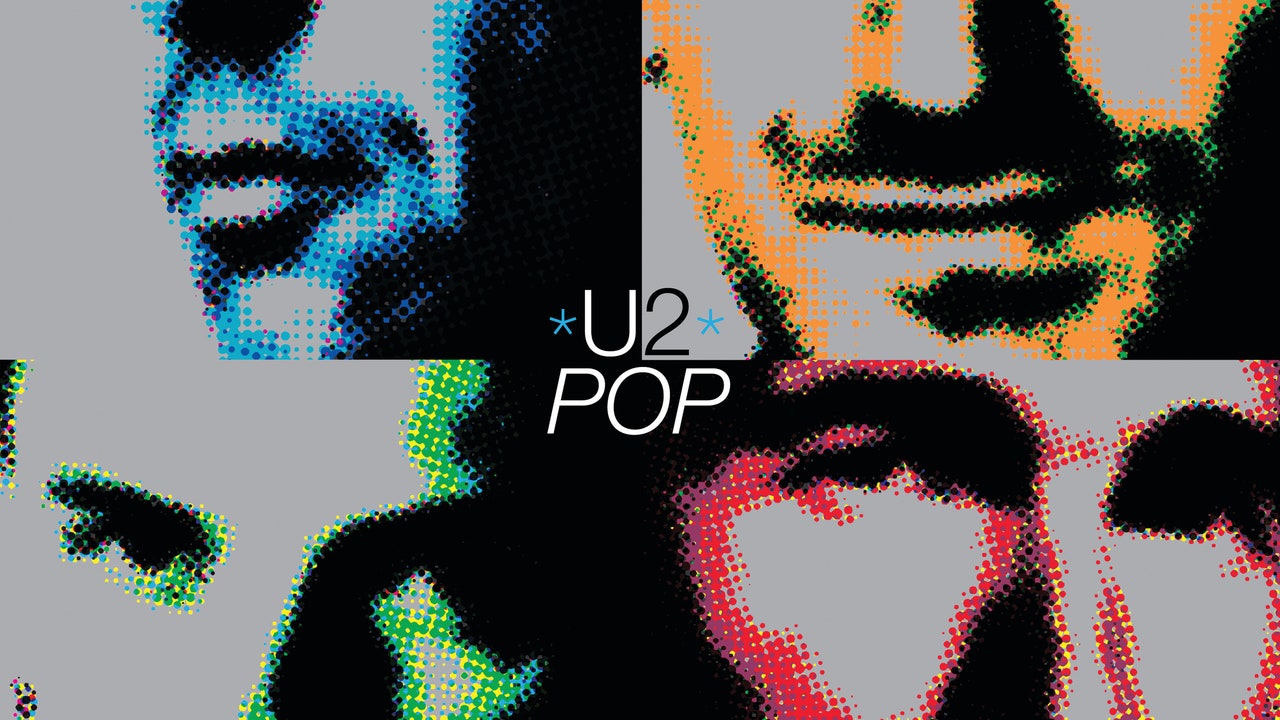For as long as they’ve been making music, U2 have been afraid of being boring. That might sound like an odd thing to say of a band whose most recent album is a nearly three-hour, 40-track compilation of acoustic covers of their own back catalog, but the impulse to stun, bewilder, and confound has been an animating motivation since their formation in Dublin in the mid-1970s. It’s what excited the thunderous political ardor of War in 1983; what inspired their shift toward expressive watercolor grandeur on The Unforgettable Fire; what drove them to “go away and dream it all up again” after the landmark success of The Joshua Tree caused drummer Larry Mullen Jr., to worry that the band was “turning into the world’s most expensive jukebox.” Fear of being boring might be U2’s defining feature. And it is the essence of Pop.
“I do think that we live right now at a time, the fag end of the 20th century, where there’s a lot of nostalgia, and the musical climate is like karaoke,” Bono muses, voice even and eyes searching, halfway through U2: A Year in Pop, a 45-minute prime-time special that aired on ABC in the spring of 1997. “People aren’t liking things because they are great. They’re liking them because they remind people of something that was great.”
It was a complaint that Bono sounded often around the release of Pop, U2’s ninth studio album and—depending on what kind of U2 fan you ask—either their most interesting, most challenging, or least successful. In the wake of U2’s surprising reinvention as one of the most consequential popular rock bands of the 1990s, Bono had become enthralled by the pursuit of a freshly contemporary sound, and he had been pursuing it everywhere: in hip-hop and disco, techno and R&B. “When we’re at my house,” he told a reporter at the time, “it’s Sonic Youth next to Chic, into Dr. Dre or Wu-Tang Clan, into ‘Surf’s Up’ by the Beach Boys. Now, that might be a fucked up evening for some people, but that’s the way I live.”
Practically the only thing he wasn’t interested in listening to anymore was rock—it had become too stagnant, too resistant to change. “Y’know, what is rock music now? What is it?” he asked rhetorically in Q magazine. “Because there was once a time when people hadn’t heard the sound of an electric guitar overloading through a little printed circuit going into an amp. When people heard Hendrix, that was fresh.” You wouldn’t find that pioneering spirit listening to R.E.M. or Oasis, Bono felt. You had to look further afield. As he told Time, “White-bread rock has, for me, lost its sense of adventure, and seems very tired in comparison to hip-hop.”
